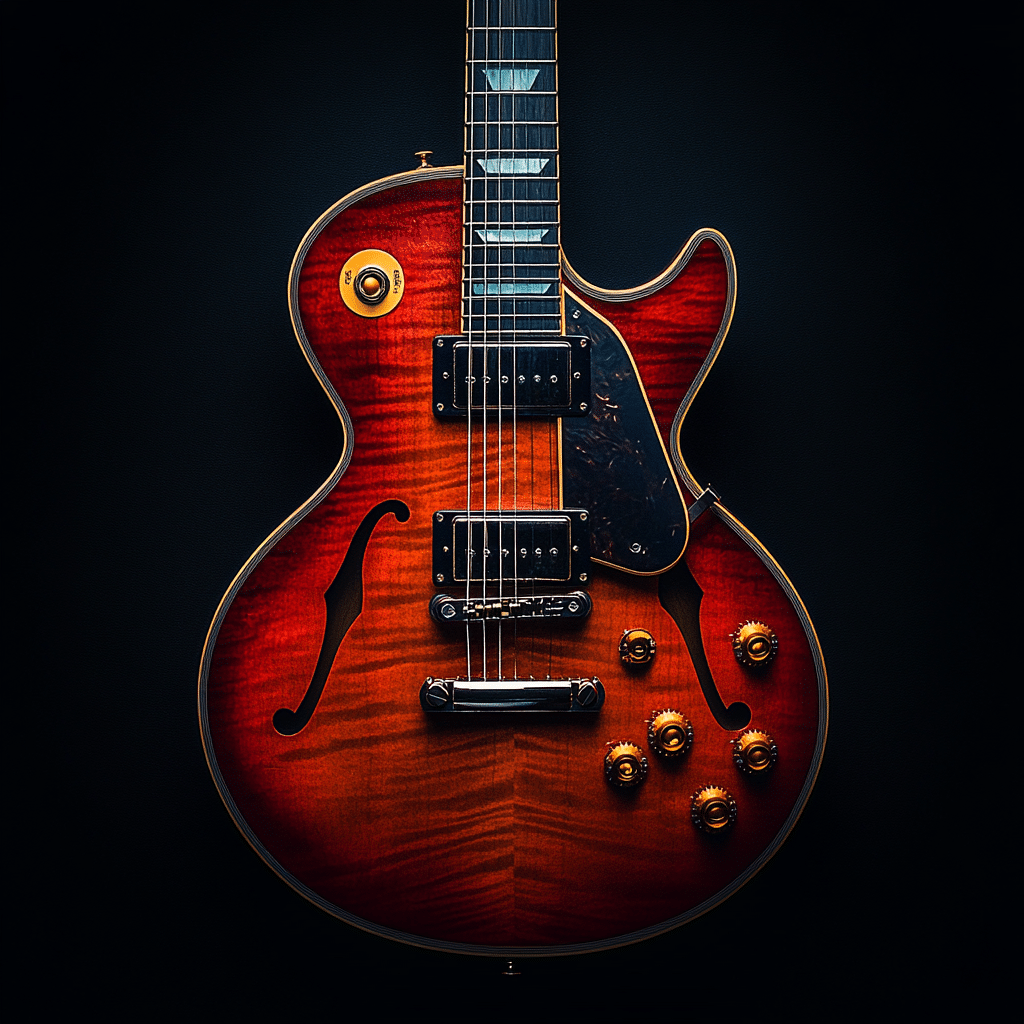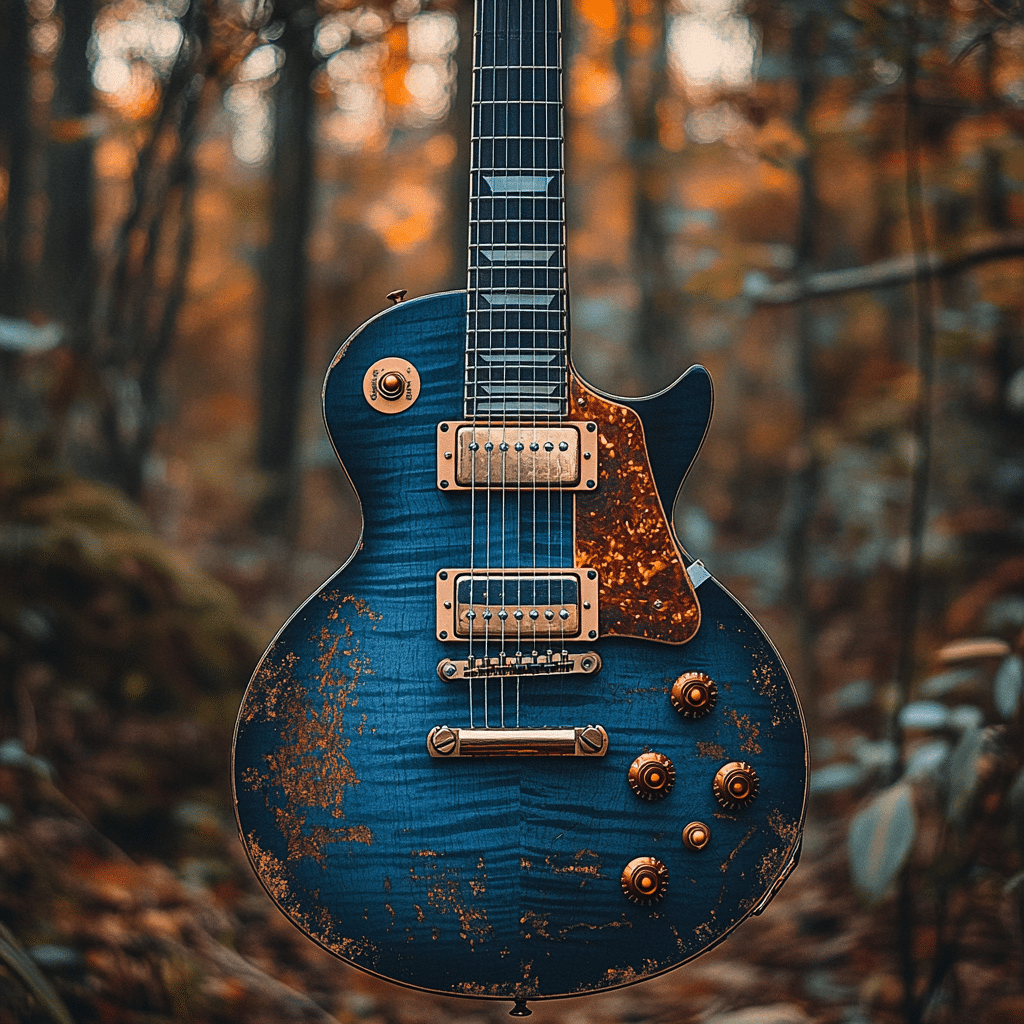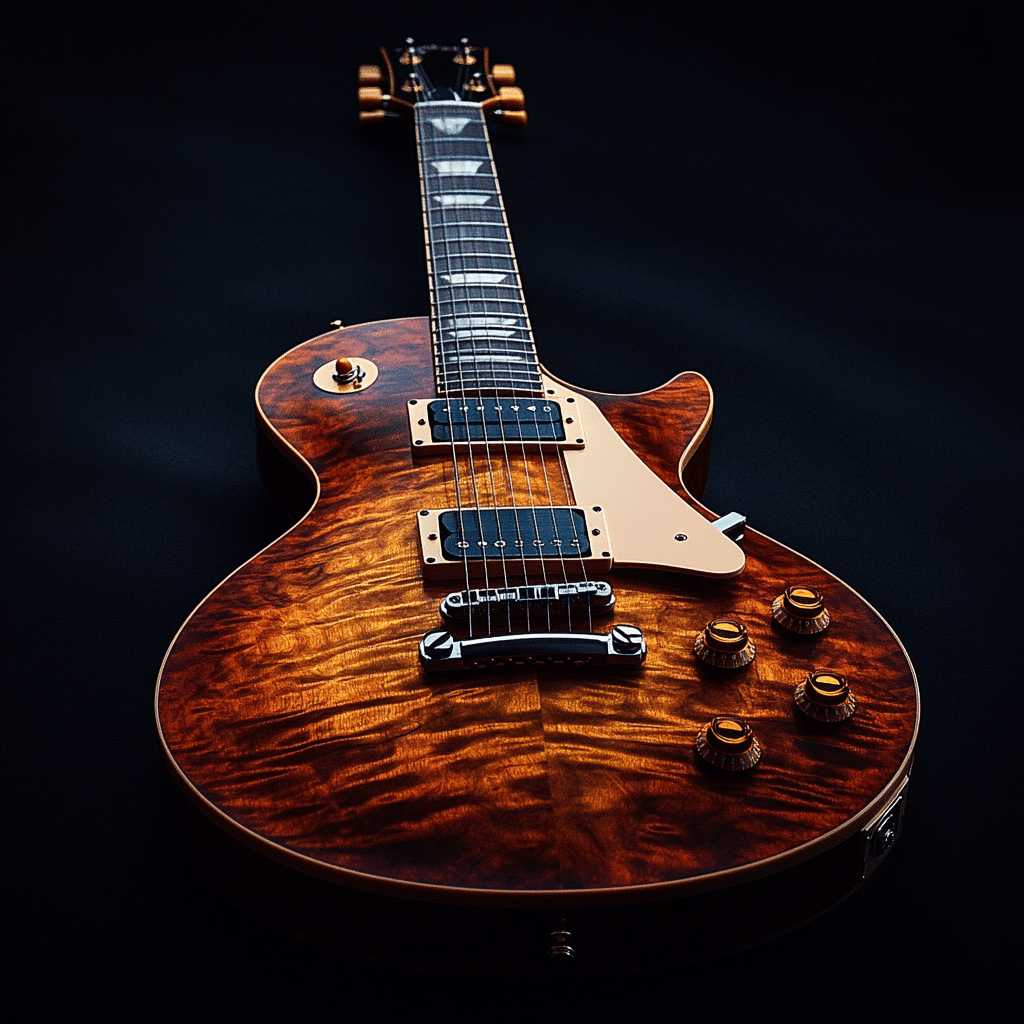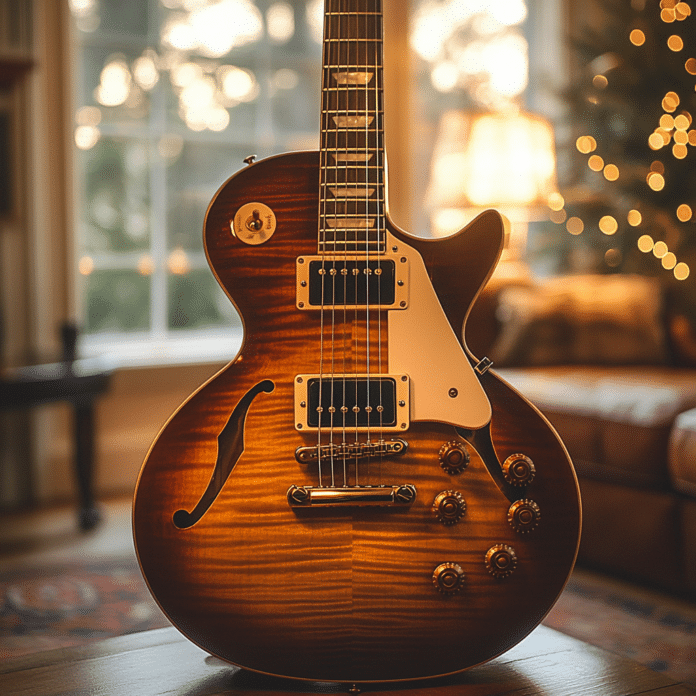The Legacy of the Gibson Guitar
Since its inception in 1902, the Gibson guitar has stood tall as a symbol of musical excellence. Known for its rich tones and beloved playability, Gibson has played a pivotal role in crafting the very essence of rock music. From the hard-hitting riffs of the 1960s to the intricate solos that define modern sounds, Gibson guitars continue to deliver the resonance and sustain that artists crave. Their craftsmanship shines through innovations like the humbucker pickups and the iconic Les Paul shape, making these instruments legendary tools for musicians worldwide.
Gibson guitars don’t just make music; they shape careers and genres. With each strum, they carry a rich history that resonates with fans and players alike. The brand has crafted guitars for everyone from the local garage band to rock royalty, ensuring their instruments remain relevant across generations. The unmistakable sound of a Gibson has become synonymous with various rock subgenres, solidifying its place as a defining element in the landscape of modern music.
As we dive into the top models that have defined rock history, it’s crucial to recognize how these masterpieces have influenced not only musicians but also the sounds we associate with rock ‘n’ roll itself. The unique characteristics of each guitar contribute to its signature tone and playability, enabling artists to express themselves creatively. In doing so, these instruments have woven themselves into the cultural fabric of rock music.

Top 7 Gibson Guitars That Shaped Rock History
Let’s explore seven of the most iconic Gibson guitars that have left a lasting mark on rock music. Each of these instruments has its own story and sound, adding to the rich tapestry of rock history.
1. Gibson Les Paul Standard
Released in 1952, the Gibson Les Paul Standard is perhaps the most famous model in the Gibson lineup. Renowned for its thick, sustained tone and remarkable versatility, it quickly became the go-to choice for guitar legends like Jimmy Page and Slash. Songs such as “Whole Lotta Love” and “Sweet Child o’ Mine” showcase the Les Paul’s ability to deliver powerful riffs and soaring solos that define the sound of rock.
The Les Paul is more than just an instrument; it’s a piece of rock history. Its heavy body and unique construction contribute to its warm, full-bodied sound. Whether used for blistering solos or deep, resonant chords, this guitar has been pivotal in countless rock masterpieces.
2. Gibson SG Standard
The Gibson SG Standard, with its sleek, double-cutaway body, emerged during the 1960s and quickly gained popularity. Known for its lighter weight and aggressive tonality, it became a favorite of artists like Angus Young of AC/DC and Tony Iommi of Black Sabbath. The SG’s sharp and biting tone became synonymous with hard rock, making it an essential part of their sound.
Designed for speed and power, the SG allows players to unleash their creativity. Its fast response and lightweight design also make it ideal for high-energy performances. This guitar is not just revered for its look but also for the sonic punch it delivers, leaving a lasting legacy in the hard rock genre.
3. Gibson Explorer
First introduced in the 1950s, the Gibson Explorer was, at the time, a bold leap into the future with its avant-garde design. Over time, it found acclaim in the rock world, thanks to artists like Dave Mustaine of Megadeth and Michael Bloomfield. Its unique shape isn’t just for show; it houses a powerful sound that has made it a beloved choice for many metal guitarists.
The Explorer’s richness in tone allows it to cut through any mix, delivering a sound that is both raw and refined. As it transitioned into new musical eras, its appeal remained steadfast, proving that good design and sound stand the test of time.
4. Gibson Flying V
Launched alongside the Explorer in the late 1950s, the Gibson Flying V became iconic for its distinctive V-shape and powerful sound. With artists like Jimi Hendrix and Albert King highlighting its standout presence, this guitar has made waves in various rock subgenres, from blues to thrash metal. The Flying V delivers an unmistakable tone, fitting any intense rock performance.
Exceptionally comfortable to play, especially for long sets, the Flying V has earned its place among the greats. Its striking appearance and versatility allow musicians to express not just music but a statement, merging style and audio in thrilling ways.
5. Gibson Les Paul Custom
Often referred to as the “tuxedo” guitar due to its elegant black finish and gold hardware, the Les Paul Custom has been a favorite of legendary artists like Eric Clapton and Randy Rhoads. With a rich, full-bodied sound, it provides the perfect canvas for expressive solos and intricate rhythms often found in rock ballads.
The craftsmanship in the Les Paul Custom fosters creativity by allowing musicians to explore a wide range of sounds. Its nuanced tonal characteristics enable players to convey deep emotion through their music, making it an enduring choice for serious artists.
6. Gibson J-200
While primarily known for electric guitars, the Gibson J-200 acoustic has made its mark in rock music. With booming bass and crisp high-end tones, it has become the instrument of choice for luminaries like Paul Simon and Bob Dylan. This blending of folk and rock demonstrates the guitar’s versatility and adaptability.
The J-200’s unmistakable sound has added rich texture to various rock compositions over the decades. Its larger body creates a vibrant sound that resonates, making it a staple for songwriters and performers alike.
7. Gibson Firebird
Designed in the early ’60s, the Gibson Firebird stands out for its reverse body shape and unique mini-humbucker pickups. Artists like Johnny Winter and The Allman Brothers Band have embraced it, using its sharp sound to carve out a distinctive niche. The Firebird’s tonal range sets it apart from its Les Paul and SG competitors, bringing a fresh edge to rock music.
Combining classic Gibson craftsmanship with innovative design, the Firebird allows musicians to experiment with sounding different. Its rich history and modern use highlight the guitar’s influential role in the evolution of rock music.
The Influence of Gibson Guitars on Rock Genres
The influence of Gibson guitars stretches far beyond rock. They’ve permeated metal, blues, jazz, and pop music. Each model brings tonal characteristics that cater to different playing styles, enhancing the genre’s sonic landscape. For example, the Les Paul’s versatility makes it a favorite among blues and metal musicians, while the SG’s aggression resonates in hard rock and punk.
Innovative guitar techniques have blossomed with the help of Gibson guitars, shaping the musical landscape. These instruments are more than just tools; they’re vehicles for creative expression that push artists to explore and redefine genres. In countless bands, the sound of a Gibson guitar has elicited the passion and energy that fans love.

The Future of Gibson in Rock Music
As we glance toward 2024, Gibson remains at the forefront of innovation while cherishing the traditional craftsmanship that has defined the brand. Collaborating with contemporary artists implies a commitment to modernizing while honoring the legacy of classic guitars. Notably, the budget-friendly Epiphone brand makes the iconic sounds of Gibson accessible to a broader audience.
Sustainability also factors into Gibson’s future. By introducing eco-friendly materials and manufacturing practices, the brand embraces environmental consciousness while ensuring successors can enjoy these prized instruments for generations to come. The future looks bright for Gibson as they continue to evolve with musicians’ needs.
Resounding Impact and Cultural Significance
The influence of Gibson guitars within rock culture is monumental. These instruments have catalyzed the careers of countless artists and have come to symbolize rebellion, creativity, and self-expression. With the rock genre continually evolving, the legacy of Gibson will undoubtedly shape future generations of musicians.
As we admire the artistry and innovation behind these masterpieces, it’s clear they are more than just tools; they are integral parts of the history of music. Future musicians will undoubtedly continue to be inspired by these guitars as they create the next chapters of the rock narrative. The Gibson guitar will always maintain its reputation as a cornerstone of musical expression, echoing through the ages as a testament to creativity.
If you’re considering exploring the world of music more deeply, check out the cross county mall for instruments and inspiration. With products like the Gibson J-200 to discover, you’re sure to find something that speaks to you. Whether you’re refinancing a house or just want to rock out like a legend, Gibson guitars are where the magic happens.
Final Note
As a brand, Gibsons are not just instruments; they are history waiting to be made. The guitarists and legends behind these models have proven time and again that the right gear can transform sound and lead to unforgettable music moments. So, pick up a Gibson guitar, and you might just write the next legendary song.
Gibson Guitar: A Legacy of Rock Excellence
Classic Guitars and Their Legends
The Gibson guitar has been a rock ‘n’ roll staple since its inception, gracing stages with timeless sounds. Did you know that the infamous Les Paul model wasn’t just named after the legendary guitarist? Originally, he collaborated with Gibson to create a solid-body electric guitar that would change the music scene forever. Talk about a game-changer! This partnership helped catapult rock music into an exciting new phase, much like the buzz surrounding Season 9 Suits, which kept fans on the edge of their seats. Just like the dramatic twists in that series, the Gibson Les Paul guitar has a rich history filled with innovation and influence.
Famous Users and Their Stories
Many famous musicians have strummed Gibson guitars; think of Jimmy Page, Slash, or Eric Clapton – they’ve all created legendary sounds that embody the essence of rock. In fact, Clapton’s signature model is a prized possession for collectors. Speaking of prized possessions, musicians often have to weigh expense against practicality. Just like when refinancing a house can change your financial landscape, choosing the right guitar can transform a musician’s sound and style. And it’s not just about looks; the craftsmanship involved rivals that of the way cedar Trees are uniquely beautiful in nature, making each Gibson guitar a work of art.
Rock Guitars in Culture
Beyond their musical impact, Gibson guitars have woven themselves into pop culture. You might recall the iconic Batman mask, which, like these guitars, has become a symbol of rebellion and artistry. Similarly, the vibrance of a Gibson was evident when it made appearances on shows like The Wendy williams show news, where artists showcased their musical prowess. Each performance speaks volumes, echoing the days of rock legends who have passed on. It’s poignant to reflect on the loss of talents, like Tito Jackson, whose journey reminds us of the rich tapestry of music history, an interplay of joy and sorrow.
By embracing the allure of the Gibson guitar, we celebrate an instrument that not only defines rock but connects artists with their fans. Whether you’re a musician, a collector, or simply a music aficionado, the Gibson guitar remains an emblem of creativity and passion, proving that its impact will resonate for generations to come. Just like the high-stakes thrills of an OKC Thunder vs. 76ers match player stats game, every strum has its own story to tell.




